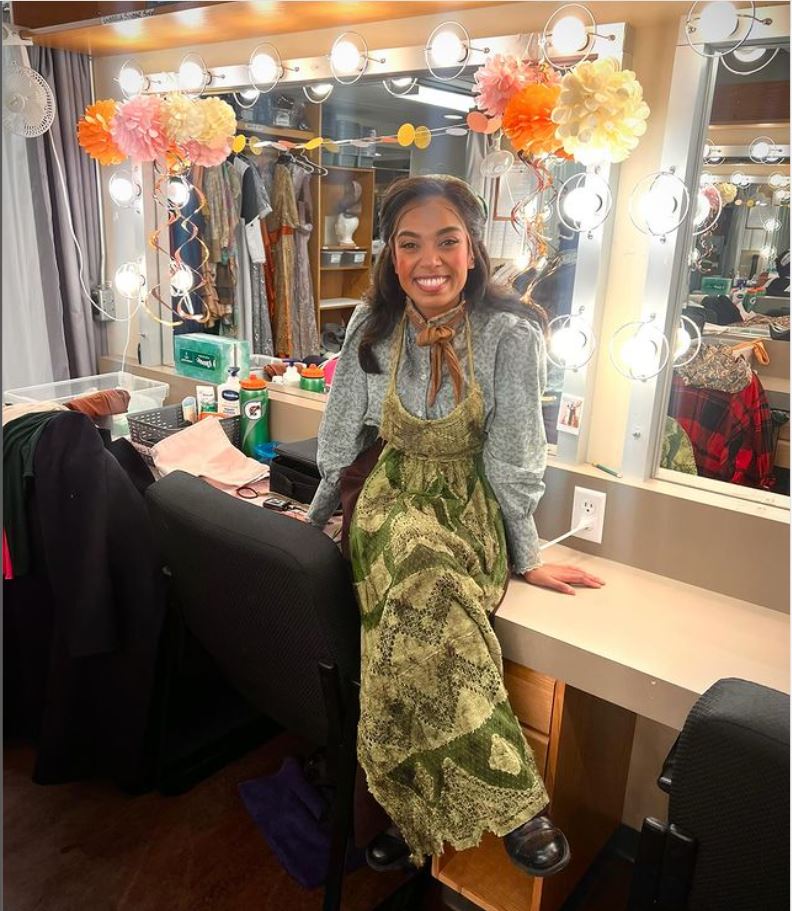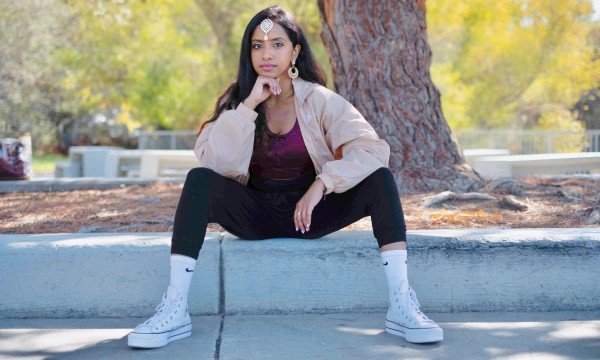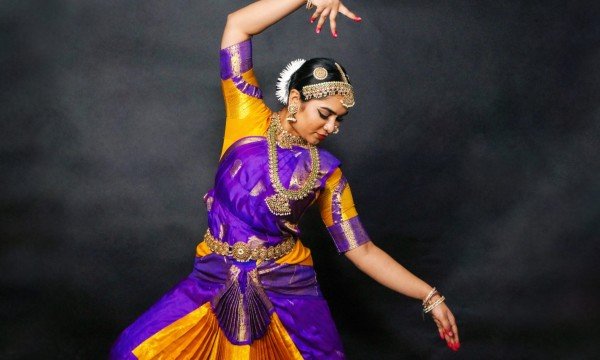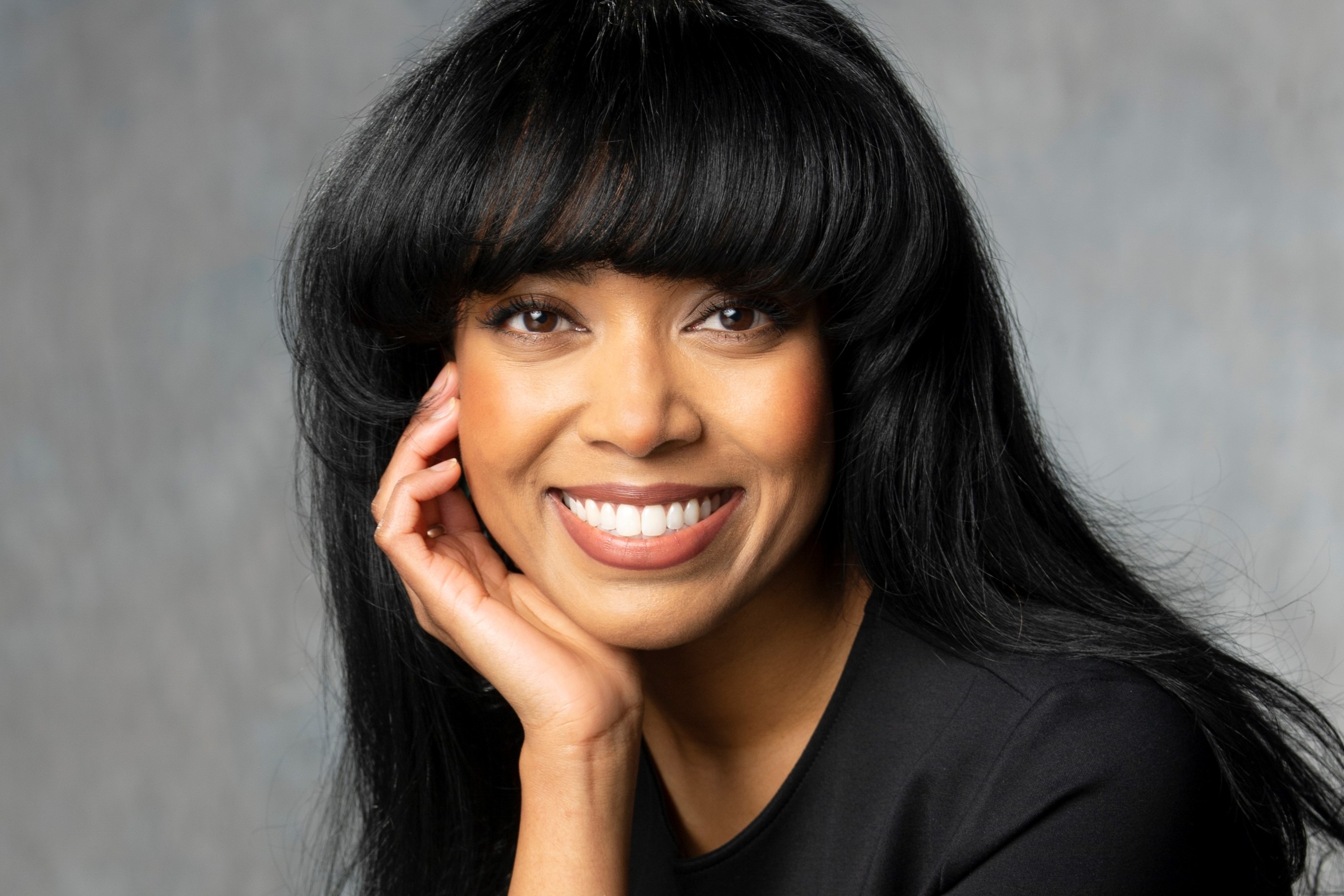
Gabriella Sundar Singh, a Toronto native, takes us through her journey of discovering her passion for performance. As a professional actor, she continues to break barriers, aiming to inspire young people of color to follow their dreams in the arts. Gabriella has played numerous leading roles at the renowned Shaw Festival in Niagara-on-the-Lake, including her recent portrayal of Mary Lennox in The Secret Garden, and in popular television productions like Kim's Convenience, where she played Chelsea Chettiar.
Catch her captivating performance in the Shaw Festival’s My Fair Lady, running through December 22, 2024. Tickets available here.
Tell us about your childhood.
I was born and raised in the east end of Toronto, and I've spent my entire childhood and upbringing there. I, for a very long time, identified as a city girl and I love everything about Toronto as its home. I went away for my undergrad at Guelph and in Montreal for my acting school and now I'm living in Niagara-on-the-Lake as part of my job. So something I have learned over the years is that your home is where you make it, which I think has been a really interesting lesson.
Can you give us an insight into your surname ‘Sundar Singh’?
My last name is Sundar Singh, two words with no hyphen. I'm a very proud Sundar Singh. I come from a line of really hard-working and loving people who are invested in their community and that's what my heritage means to me. So when my Thaatha, appa’s appa, immigrated to Canada, the story goes, he was filling out the immigration form and had to fill in first name, last name. So he ended up taking 2 of his middle names and putting it under last name. I often get asked if my heritage is Sikh or Punjabi. We are Tamil Christian so it's always a little bit of a surprise to people but it's a great conversation starter.
Bharathanatyam on the Canadian series The Next Step. Dance features Gabriella (centre), her sister and troupe. Choreography by Gabriella.
In ‘The Secret Garden’ at the Shaw, you play the title role in a story about a girl who discovers her true nature. How did you discover your calling as an artist and performer and decide to pursue it as a career?
Amma and Appa enrolled me in Bharatanatyam when I was four and a half, along with piano and later singing lessons. The arts were always part of my life, but they felt like hobbies. I think for everybody on this planet, I think if you took the time to really look inside yourself and be honest with yourselves, I think there's something to that element of what is your true nature. Amma will say it's like “thanni”, like water for you. It's something that comes easy for you. I was always drawn to the arts, but I didn’t realize they could be a career.
I decided to become an orthodontist because I admired my orthodontist's work and their role in the community, doing an important job of helping people create beautiful smiles. I got into my undergrad program for biology at Guelph, and I remember the exact moment, when I received my acceptance letter is when things changed. It felt like a movie scene: the temperature in the room, the letter in my hands. I had a flash-forward of long nights in labs and writing papers, and my gut told me it wasn’t my path.
When I told my parents, their only response was, "Why didn’t you tell us sooner so we could have helped you get into the program you wanted?" Even then, it took years to understand how to make the arts my living. After undergrad, trying acting in my twenties, and attending the National Theatre School in Montreal, I still wasn’t sure it was sustainable, until I joined the Shaw Festival. There, I discovered a community of people who were not just making a living in the arts but were deeply invested in creating meaningful work—not for name or fame, but to share good art with the world. That’s when it all clicked for me.
Everyone has their own definition of a career and what success means. For me, success is about creating art that I love and sharing it with others.
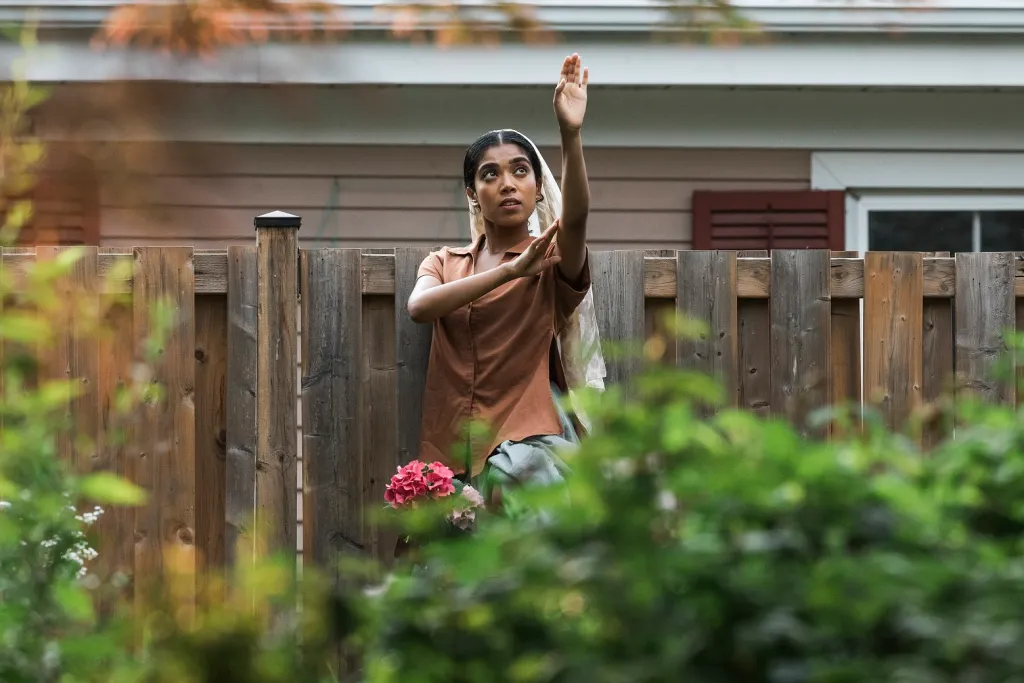
How has your training in Bharathantyam helped you as a performer on stage?
I cannot thank my Amma enough for introducing me to Bharatanatyam. Growing up, she was a Bharatanatyam dancer and had a deep love for the art, so when my sister and I were old enough, she enrolled us in dance to provide a creative outlet. I truly believe that it has shaped everything I do. Bharatanatyam, being a form of dance-drama, is inherently expressive and storytelling. These elements—larger-than-life emotion, physicality, and expressiveness—are crucial to classical theatre, especially the work we do at the Shaw Festival.
One of the most memorable moments in my early days at Shaw was with my first director, Kimberley Rampersad, now our associate artistic director. As a newcomer, I had natural fears about how to bring myself into the room. Kimberley pulled me aside and said, "Gabriella, I want you to try the scene again, but I want you to use your Bharatanatyam eyes. Do you know what I mean?" I immediately understood—she wanted me to bring all of myself, including the expressive elements of Bharatanatyam, into the work. That moment was transformative for me because I realized I didn’t have to suppress who I am. In this industry, we're often judged based on appearance or sound, and sometimes, my expressive eyes or dramatic performance might be seen as "too much" elsewhere. But at Shaw, it’s been celebrated, and I’m so grateful for that.
Watch season 1 of the first blind dating show for the Tamil diaspora, Dating While Tamil, brought to you by myTamilDate & TamilCulture!
Can love blossom when you step out of your comfort zone? Join us as 8 Tamil singles from Toronto step out of their comfort zones to search for love in this exciting blind dating experience.
Watch the rest of the episodes here!
Could you share your experiences as a professional theatre artist and how you navigate the repetitive aspects of the job?
Being a professional theatre artist, especially in a repertory company like the Shaw Festival, is a dynamic experience. As the second-largest repertory theatre in North America, Shaw operates with performers and crew working on multiple productions simultaneously. This season, I’m performing in The Secret Garden and My Fair Lady. We began rehearsals for My Fair Lady in March, and within a few weeks, The Secret Garden was added to the schedule. A typical day might involve rehearsing one show in the morning and the other in the afternoon, with the schedule varying daily.
Unlike stock theatre, where you rehearse one show for a few weeks before opening, Shaw provides the luxury of time. We have extended rehearsal periods and up to a month of previews. Our artistic director, Tim Carroll, emphasizes that previews are not for warming up but for performing at a high level while fine-tuning the work. By the time we officially open, the preparation helps us manage any nerves and deliver polished performances.
Another unique aspect of repertory theatre is understudying roles for shows we might not have rehearsed. For example, I’m the understudy for Ms. Proserpine in Candida. I learned the role by watching performances and reviewing rehearsal videos. This requires adaptability and preparation, as you might be called to perform at any time. Working in rep teaches you not to hold things too tightly and to stay flexible.
As for the repetitive nature of performing, it’s both a challenge and an opportunity. By the time My Fair Lady concludes in December, we’ll have performed it nearly 150 times. To keep the work fresh, I set daily challenges for myself. One day, I might focus on refining my breath control to sustain sentences more smoothly. Another day, I might concentrate on resonance, projecting my voice to fill the theatre and bounce back. I also look for something new on stage each time—whether it’s hearing a line differently, meeting a castmate’s eyes in a new way, or noticing a detail I hadn’t before. Repetition is an opportunity to continually improve and discover.
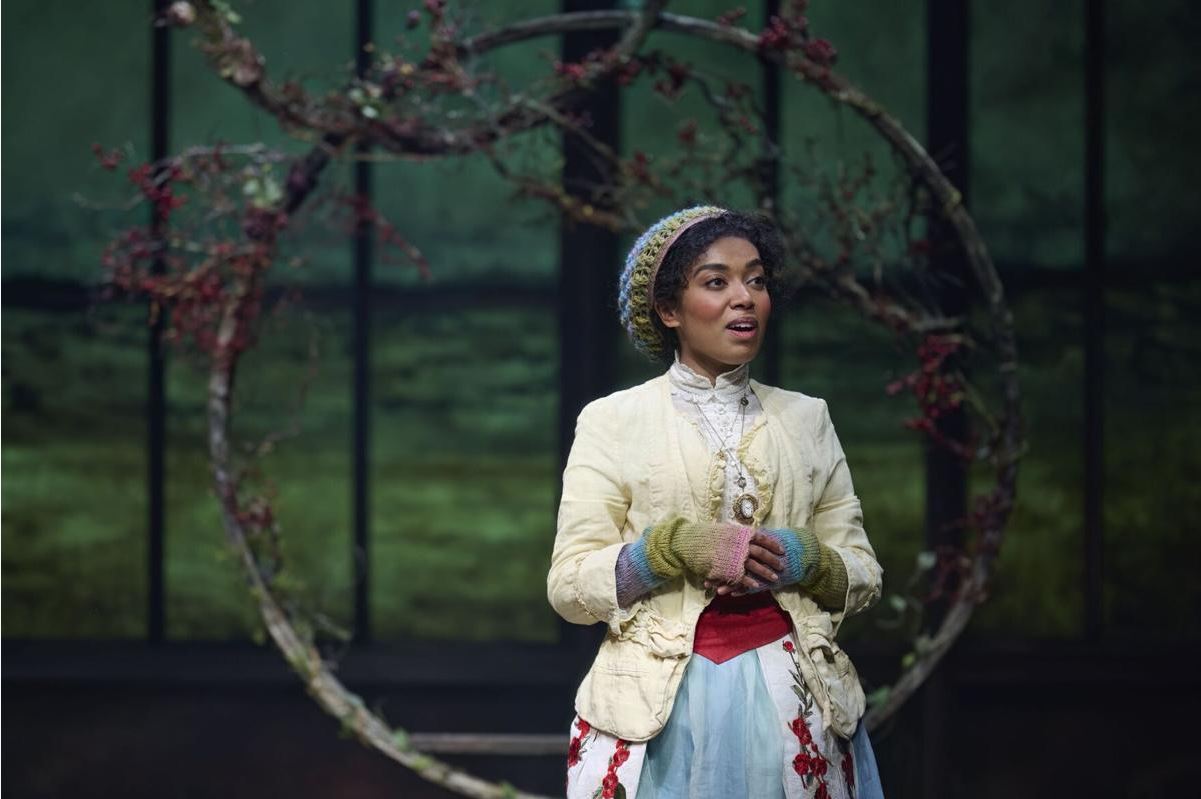
Gabriella Sundar Singh as Mary in “The Secret Garden” at the Shaw Festival. Michael Cooper/Shaw Festival
In ‘The Secret Garden’, you play the title character, Mary Lennox. How does it feel as a person of color playing a role that is traditionally played by Caucasian actors?
I feel incredibly fortunate to play Mary Lennox, a role that traditionally hasn’t been cast with a person of color. This season’s adaptation of The Secret Garden is particularly special, directed by Jay Turvey, an ensemble member, with music direction by Paul Sportelli. They’ve been working on this project for years, waiting for the right moment to share it with the world.
Before the season began, we had conversations about what it means for me, as a woman of color, to take on this role. It’s fascinating to revisit the novel, which, like many classics, reflects elements of its time that we don’t necessarily align with today. At its core, this is a story about a young girl discovering her true self through the healing power of nature, family, friendship, and community.
There’s a poignant line in our script: “When you’re in pain and suffering, it manifests in many ways. And until you heal, you may end up pushing away the people you need and love most.” That’s the heart of the story we’re telling, and I’m so grateful to be part of it.
Playing Mary Lennox is not just about embodying the character—it’s about representation. I hope young people of color see themselves reflected in this role and feel inspired. This is about paying it forward and leaving the door open for whoever comes next.
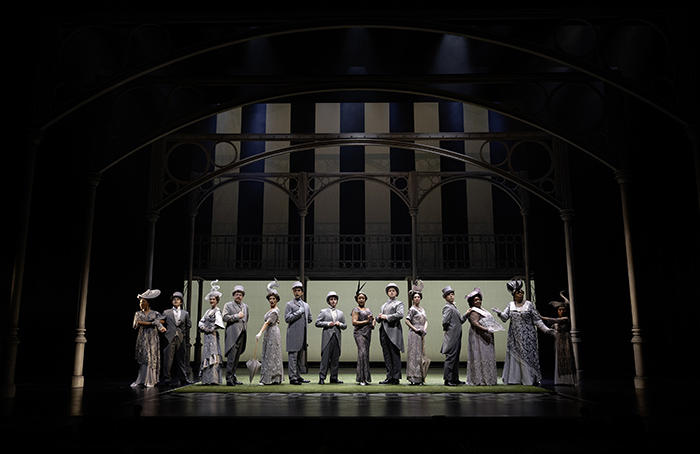
The Shaw’s programming showcases remarkable diversity in both the stories it tells and the actors performing them. Do you see this diversity reflected in the audience? What steps can be taken to break barriers and attract a more diverse audience to these spaces?
It starts with programming and artistic leadership—recognizing the wealth of stories from every corner of the world. The next step is bringing in a diverse group of artists to tell these stories. Finally, the most challenging piece is building a more diverse audience
In Tamil culture, we come from a rich tradition of the arts. Many of us grew up attending Bharatanatyam arangetrams or Carnatic concerts, where music and dance are deeply embedded in our lives. Many other cultures have similar artistic traditions. However, this doesn’t always translate into attending North American classical theatre, which may feel distant or disconnected from our experiences. But I think it's because we do have that richness in our culture. So if we have that resource, the question is, why would you want to attend another venue that is perhaps not as connected to you or could be worlds away?
The key is understanding that the more art we experience, the more our appreciation for both art and humanity grows. By stepping into unfamiliar artistic spaces—whether it’s a theatre or a performance that feels different from our own cultural context—we might discover surprising connections. Stories that seemed distant at first often resonate deeply, offering new perspectives and a sense of shared humanity.
So, perhaps the answer lies in a willingness to step outside of ourselves. By taking a chance, buying a ticket, and immersing ourselves in a new story, we might be transformed in ways we never expected.
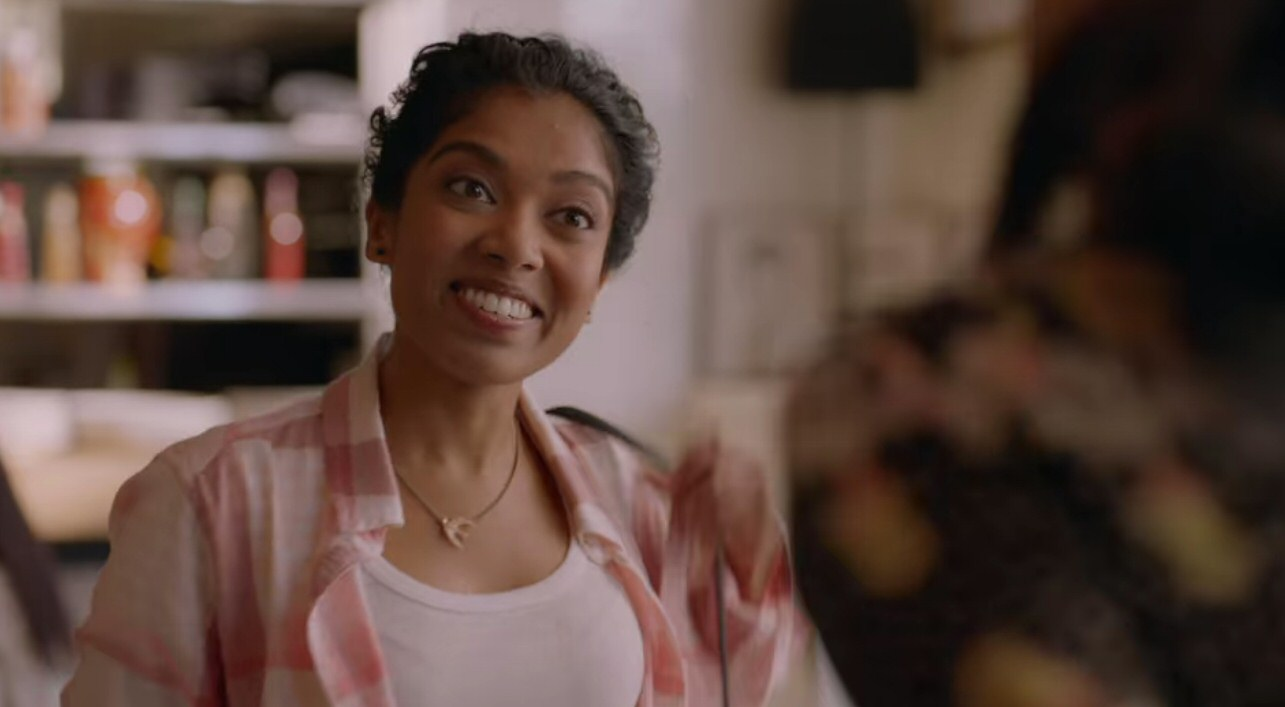
Chelsea Chettiar from Kim’s Convenience is such a unique and memorable character. After playing such a role, do you find yourself getting typecast?
It hasn’t happened to me. I don’t think Chelsea left such a strong impression—whether good or bad—that it defines who I am or how I'm known. I feel incredibly lucky and thankful for the opportunities I’ve had. When I go into an audition or work on a project, the people in the room are ready to meet me—not just for a specific role, but for who I am at that moment. That’s a blessing—to be in a space where people are open to accepting and receiving you as you are.
What’s next for your Gabriella?
As an artist, the exciting and uncertain part of the job is that it’s contractual. We’re gig workers—once you book a role, you work for as long as that role exists, and then it’s on to auditioning for the next one. Even while you're under contract, you're always auditioning, because nothing in this industry, or in life, is guaranteed.
For a while now, my long-term goal has been to move into education. I had such a formative experience at the University of Guelph, where professors and mentors were genuinely invested in each student’s success and well-being. That made a lasting impression on me, and I feel it's important to pay it forward. Last year, I took a break from Shaw to pursue my master's in drama at UofT, taking steps closer to that dream. While I may not know exactly what the immediate future holds, I’m clear on my long-term goals. My parents instilled in me from a young age the importance of knowing the bigger picture—what kind of impact you want to leave. That’s what I’m working towards.
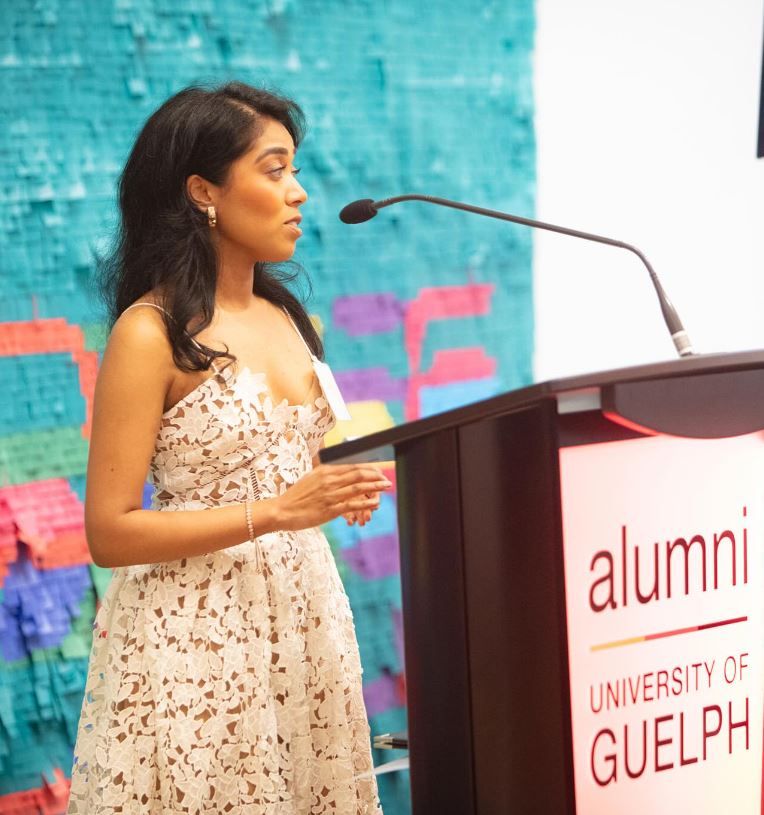
She was the recipient of the Young Alumni Award.
TC Bits:
1. If Gabriella had a secret garden, what would it contain? First of all, it would be a flourishing, beautiful, and bountiful English-style garden where everything is a little bit wild. My garden would be filled with family and friends whom I love, and who can share the space with me. It would be like the secret garden in our story— a peaceful retreat away from the pressures of the outside world, offering a bit of an escape.
2. Any hidden gems in Niagara-on-the-Lake that you would recommend? Aside from wine, another thing this town is known for is its many gelato and ice cream shops. There’s a place down the street from the Shaw venues called Il Gelato di Carlotta . I can't have dairy, but they offer some incredible dairy-free flavours. The mango is one of my absolute favourites!
3. The best compliment that you have received for your performance? I think the best compliment I’ve ever received from a performance is simply having people show up, come to the theatre, and spend time with us. Every time I look out and see people in the audience, I’m reminded that they’ve taken the time, effort, and money to be there. That’s the greatest compliment I could ever receive.
4. Has there been a crazy fan moment? I’ve had people stop me on the street here in Niagara-on-the-Lake, either calling out "Chelsea" or asking, "Hey, is that you?" because they recognize me from TV. They’re not necessarily here to see a play, but it’s like two worlds colliding. I’ve walked out of the theatre and had someone ask, "Is that her? Is that her?" and then I’ll stop and have a conversation with them. It’s wild how this aspect of my life has leaked into everyday moments.
5. Any Pre- shoot/stage rituals? I was given this pre-show ritual as a gift from my director, Diana Donnelly. She told me that before a show, during my prep time, I should arrive early and walk through the theatre—not just backstage and on stage, but through the house as well. She said, "Walk through the house and leave your energy there." I’ve done that before every show since. I walk through the house, say some of my lines out loud, and leave my words and energy in the space. By the time I step onto the stage, the seats don’t feel so far away because I’ve already walked that path. I’ve shared my thoughts and energy with the space, and it’s really nice to be there before anyone else arrives. It’s a perfect moment, and I love doing it before every show.
6. How do you wind down? I have another ritual, also from my director, Diana Donnelly. She suggested that after walking off stage, the first thing you should do is wash your hands. It’s a simple yet physical way to reset. Some people take a shower after a show to wash off the energy, but for me, it’s about walking straight off stage, washing my hands, then removing my wig and costume. The process itself is a cool-down, almost like shedding the character. After that, I like to take a short walk through town, breathe in some fresh air, and reset. Over time, my wind-down routine has become more streamlined. The more I do this, the less time I need to return to myself. I think that’s just part of the practice.
7. Any TV/Stage show recommendations? If you haven’t had the chance to experience the Shaw Festival yet, I highly recommend it. My Fair Lady is running until around December 22nd, and it’s an incredible musical with a fantastic ensemble. If you’re looking for a classic musical to enjoy, this would be the one.
On a personal note, when I’m not performing, I really value quiet moments. I love being in nature or just sitting and talking. I’ll often call my parents, and we’ll chat for hours—it’s simple, but that’s my idea of entertainment.
8. Tamil food that you love? The Tamil food I love is really anything Amma makes. She’s the best cook on this planet, and I’m so lucky to be nourished by her food. My favorites are her mutton biryani—everyone in our family and extended family looks forward to it every year. Her brinjal curry is another favorite; I could eat it by the bucketful. And for special occasions, Amma always makes vattalappam, which is my favorite sweet treat. Honestly, she makes it the best.
9. What does Tamil Culture mean to you? I think our community is incredibly resilient, and it’s also a place where I truly feel like I belong. I’m so grateful to come from a culture that’s rich in experiences, stories, and art, and that puts such a strong emphasis on community. To know that I come from that heritage and can contribute to that legacy is a true honor.
My hope is that when I leave this world, I leave it better than I found it. I want to open the door for young Tamil people, whether they choose to pursue the arts or not, so they have an environment where they can thrive. If there’s a young Tamil person or person of color out there who feels drawn to the arts, I want them to know it’s possible. All it takes is that deep inner desire, dedication, hard work, and an incredible support system. I want to emphasize that whatever form your support system takes—whether family, friends, mentors, or colleagues—find that community and hold onto it. Nourish those relationships because, with a strong team behind you, anything is possible.
